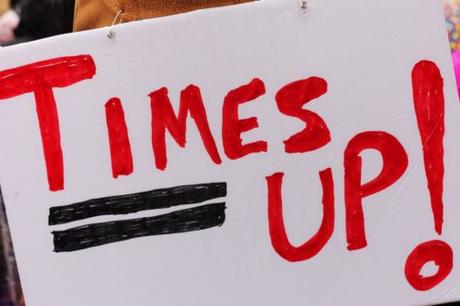There is more uncertainty for women's equality now than ever before. But this doesn't mean we are helpless, it means we urgently need to participate in shaping our own work culture. At the individual level, there is so much we can do to create an equal workplace. While I feel your pain, you are not alone and you are not helpless.
Men are receiving maternity leave with increasing demand. Because they are demanding it. What can we learn from this?
As a female executive and long-time feminist, and in my work in designing corporate cultures, I've spotted a few trends that will help you to create a more gender-equal work culture, by demand.

Change your rhetoric and context to change your culture.
"What is necessary to change a person is to change his awareness of himself." Abraham MaslowI'm quite sure that if Maslow had outlived the 1970s he would be a workplace feminist. Instead, he's stuck with an un-diverse quote on the internet. Don't make the same mistake.
Heighten the awareness of your communication, and then strengthen your communication. From an equality stance, I mean. If you are vying for your seat at the power-table, it's time to speak your power. If you aren't comfortable putting on a man's suit and becoming a different person tomorrow (like most of us), the sneaky way of changing your language is by increasing your gender neutrality.
As yogis say, awareness is the key to solving all human problems. Pay special attention. Don't refer to anything in gender context of "as women". Use words like "she" when discussing predominately men's roles in your casual conversations. Mis-define cultural norms whenever possible.
It may not feel like an overt change, yes. It's not. It's a behavioral trigger to signal a heuristic misnomer, setting your targets cognitive thinking into action. In layman's terms: you are planting seeds for change.
Reset culturally normative expectations.
"Givers need to set limits because takers rarely do." Rachel WolchinYes, women are nurturers. Yes, women are more likely to say yes. But your time management is yours. If men at your organization say no; watch, learn, adapt.
You may not have a ton of empirical data on this, but you intuitively know whether your work culture has biased expectations split between the genders. If men are getting faster promotions and expected to work longer hours, it's time to roll up your sleeves and adapt the same hours. Then speak up when you do.
If men hang out at the country club, invite everyone to a less-boring (I mean more gender neutral) activity. No seriously, if you play golf then kudos to you, but we all know the girls tees are positioned differently so we ladies miss out on much of the informal conversations.
On the other hand, in many organizations the cultural norms have become harder on women thanks to evolutionary nurturer-by-nature behaviors. A key to short-circuit this with language is to begin saying no more when your boundaries are questioned, and counter it with questioning the boundaries of a male cohort. Here's sample language if you need extra help: "I've worked the past three weekends and it would be great to have one to myself. I'm sure that ____ will fill in the time as he's had plenty of weekends."
Passive aggressive? Maybe. Effective? Definitely.
But this is where equal begins. With the mindset and the language that acknowledges both men and women are responsible for ourselves, our time and our reality.

Learn to keep your head up (higher!).
"Until the lion learns how to write, every story will glorify the hunter." African ProverbDon't get noticed, don't get fired. Don't ruffle feathers. This will also lead you down the path of: don't get promoted, and don't get thanked. Sounds like it's time to get recognized.
Now a word of precaution before you head down' this approach. If it feels uncomfortable for you, attend an improv class, a toastmasters, or other training to practice and craft your approach.
However, if you were specifically instructed to keep your head down and ride out your career until you receive your gold watch for service, the contextual environment may just not be one for you to thrive regardless of what you do.
Three years ago, Peter Diamandis predicted that all of our top companies of today will be out of business in the next 10 years. Since culture is the key tool to competitive success in the near and long term, I predict that there will be a strong correlation between those companies who don't innovate, and the companies who don't embrace inclusiveness. It's all about a fear to change; a death sentence. If you find yourself on a sinking ship, build yourself a raft.
For example, Microsoft trains every employee in inclusiveness. A culture like this won't just give you a better work life balance; you'll have more meaning and purpose in your life.
This guest post was authored by Jessica Higgins

Jessica Higgins is a marketing and culture expert whose research and publications help leaders and everyday people understand emerging trends. She was named a Breakthrough Female Founder in 2017 by Huffington Post and her work has been published in Entrepreneur, Thrive Global, Huffington Post, Forbes, CBS, Newsweek, and thousands of other publications, on behalf of herself and the clients she markets under her agency, Digital Unicorns.
Prior to creating her marketing agency, she designed the first end-to-end culture design firm, utilizing her marketing and management science experience to develop a new approach to organizational design that includes behavior change.
She is a Black Belt in the field of Lean Six Sigma with specialty in systems design (DMADV), a certification in Behavior Design, a Juris Doctor of law, a Masters of Business Management, and Bachelors Degrees in Behavioral Psychology and Political Science.

